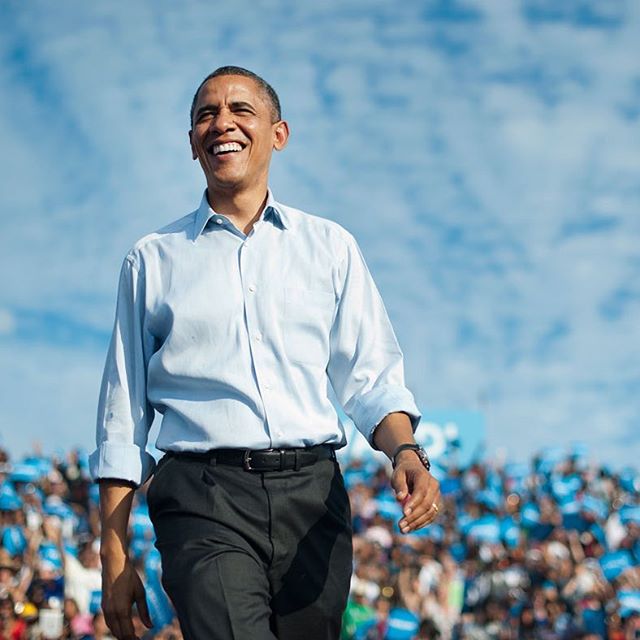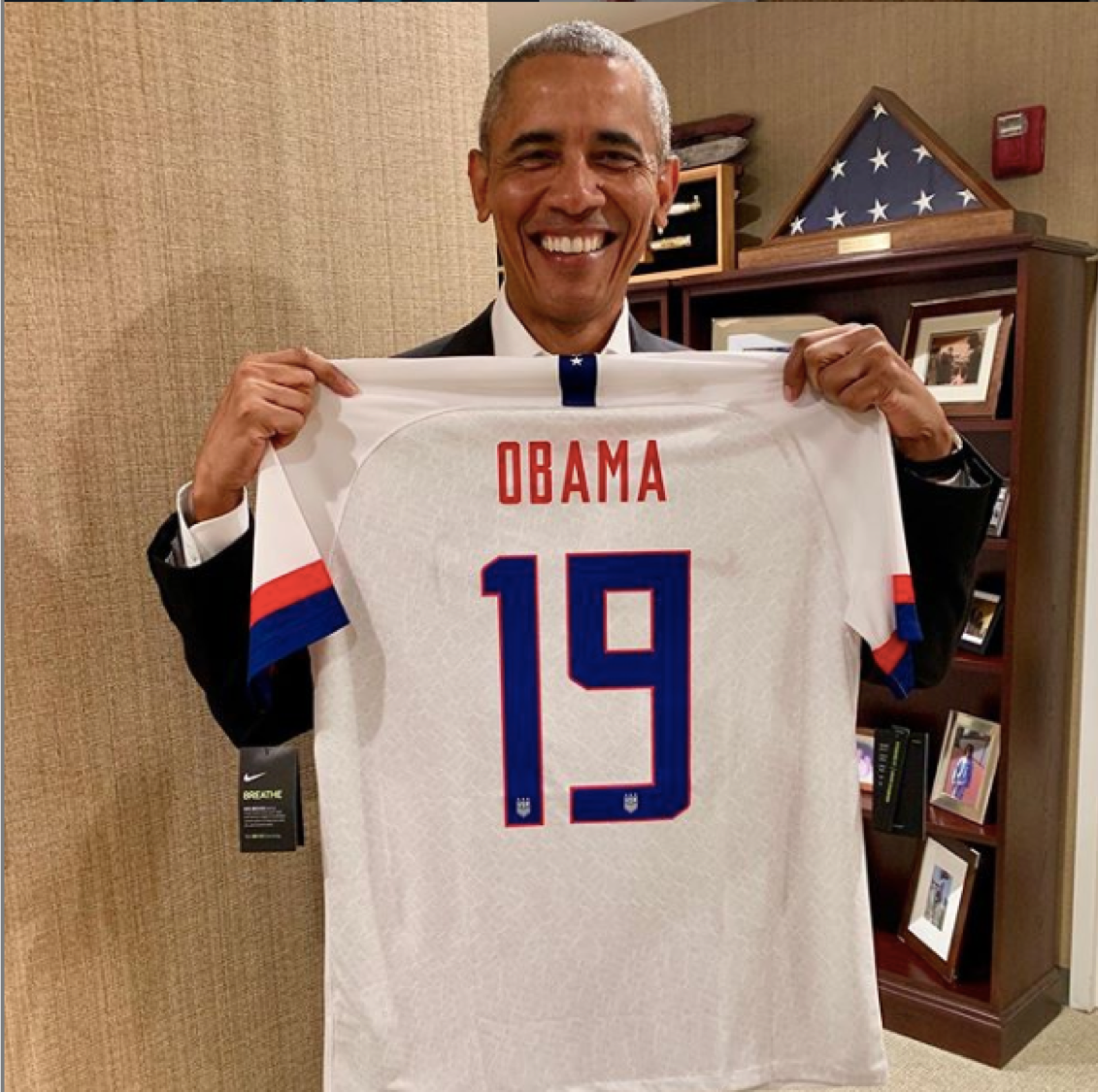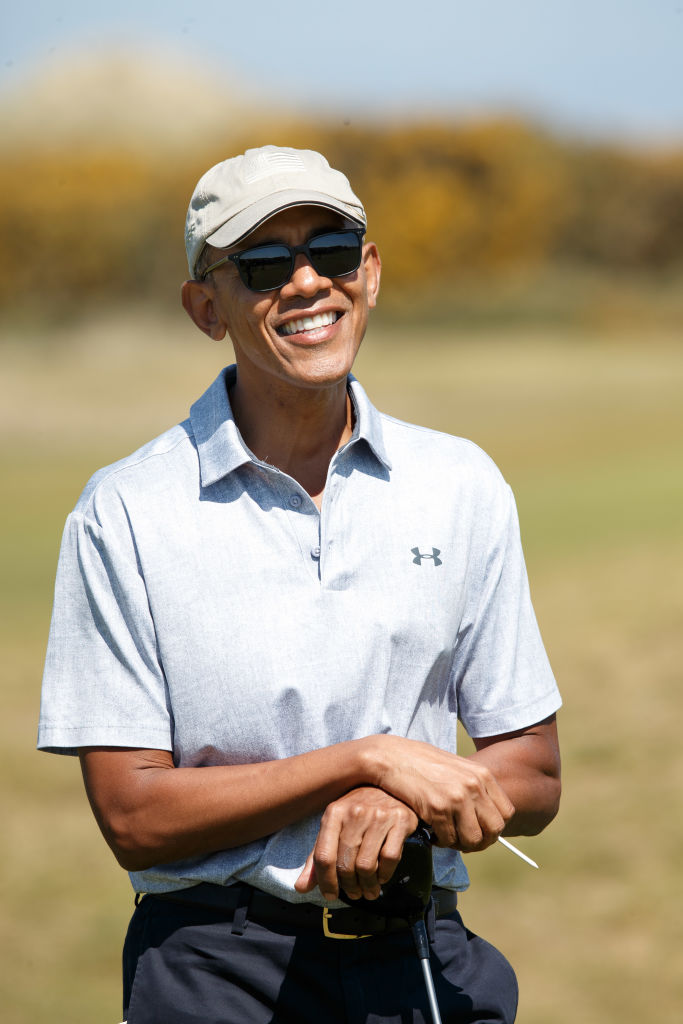
There are a number of Americans who will probably spend Obama’s birthday and President's Day reminiscing about the good old days when he was actually caring for people and doing real American political work like establishing the Affordable Care Act, taking action to save the environment by signing the Paris Agreement and creating 11.3 million new jobs that caused the unemployment rate to drop to 4.6 percent, the lowest rate in nearly a decade.
As for the 59-year-old, he’s been enjoying his birthday and President's Day away from Capitol Hill.

But even though he's no longer in the White House, the 44th President Of The United States has still been keeping busy by helping others to speak up for their rights as citizens and creating his foundation. Built upon many of the same principals as his presidency, Obama and his wife started clocking more hours for the nonprofit corporation, established in 2014, aimed at developing the future leaders and active citizens that will one day impact the world.

When Trump signed an executive order imposing a travel ban on folks from seven Muslim-majority counties and preventing Syrian refugees from entering the country indefinitely, Obama was among several leaders advocating for citizens to fight for their rights and protest. In a statement released just 10 days after he left office, Obama encouraged Americans to protest: “Citizens exercising their constitutional right to assemble, organize and have their voices heard by their elected officials is exactly what we expect to see when American values are at stake.”

But even with all of that, many in the Black community still ask "what did Barack do for me?" So, as we look forward to what he will do, we take a look back to what he has done. See below:
-
- My Brother’s Keeper: My Brother’s Keeper is a coordinated Federal effort to address persistent opportunity gaps faced by boys and young men of color and ensure that all young people can reach their full potential. Nearly 250 communities in all 50 states have accepted the President’s My Brother’s Keeper Community Challenge to raise money for young men of color programs. More than $600 million in private sector and philanthropic grants and in-kind resources and $1 billion in low-interest financing have been committed in alignment with MBK, and new federal policy initiatives, grant programs, and guidance are being implemented to ensure that every child has a clear pathway to success from cradle to college and career.
- Economic Security Has Improved: Businesses have added over 14 million jobs over 70 straight months of job growth, which sets a new record. From 16.8% in March 2010 to 8.3% in December 2015, this job growth has helped but the African American unemployment rate in half and is at its lowest level since 2007.
- College Is More Accessible & Affordable: Increasing the maximum Pell Grant by more than $1000 and total Pell Grant by 70%, President Obama signed legislation to help millions of low to moderate income students afford college every year. He’s also taken steps to reduce student loan burdens including student loan interest rates to historic lows and capping student loan payments. The president also established and made permanent the American Opportunity Tax Credit, which provides a tax cut of up to $10,000 over four years for nearly 10 million working and middle class families a year paying for college.
- Made Home Ownership More Affordable: The Federal Housing Administration (FHA) has long been an important source of financing for African American families seeking to buy their first home. Nearly half of African American families used FHA to get a mortgage. During his presidency, Obama had the FHA create a major new step to make buying a home more affordable and accessible for creditworthy families. The FHA reduced its annual mortgage insurance premiums by half a percentage point. For the typical homebuyer, this translates into a $900 reduction in their annual mortgage payment. Existing homeowners who refinance into a FHA mortgage saw similar reductions in their mortgage payments as well. Following the reduction in 2015 the number of Black borrowers (new purchases or refinance) with an FHA loan increased by nearly 50%.
Black people were hit especially hard by the housing crisis. The President took action to help homeowners, including expanding access to refinancing, which allowed responsible borrowers to save an average of $3,000 per year. The Administration has taken measures to allow homeowners who are behind on their payments to modify their mortgages to avoid foreclosure. - Prevented Families from Financial Abuses, Hidden Fees, and Deceptive Practices: To prevent mortgage companies, credit card lenders, and payday loan companies from exploiting consumers with hidden fees and other deceptive practices, President Obama fought to pass the most far-reaching Wall Street reform in history which created the Consumer Financial Protection Bureau.
- Helped the Long-Term Unemployed Get Back to Work: The Obama Administration took steps to help more of the long-term unemployed get back to work, and around one-quarter of whom are African-American. The Department of Labor awarded nearly $170 million in “Ready to Work Partnership” grants to support the best models for partnerships between employers, non-profits, and the job training system to help train and connect the long-term unemployed to work.
- Increased Funding to HBCUs: Federal funding to HBCUs grew each year since 2009. Through the Higher Education Act, HBCUs received a $17 million funding increase in 2016—the largest increase for the federal program in six years. And President Obama’s FY 2017 budget seeks to maintain and strengthen these opportunities for HBCUs to build their capacity. The FY 2017 budget proposes $85 million in mandatory funding to HBCUs, an increase of $5 million from FY 2016, plus an additional $244.7 million in discretionary funds for Title III.
This doesn’t even cover everything President Obama has done, but it’s safe to say he did a lot to help us.









